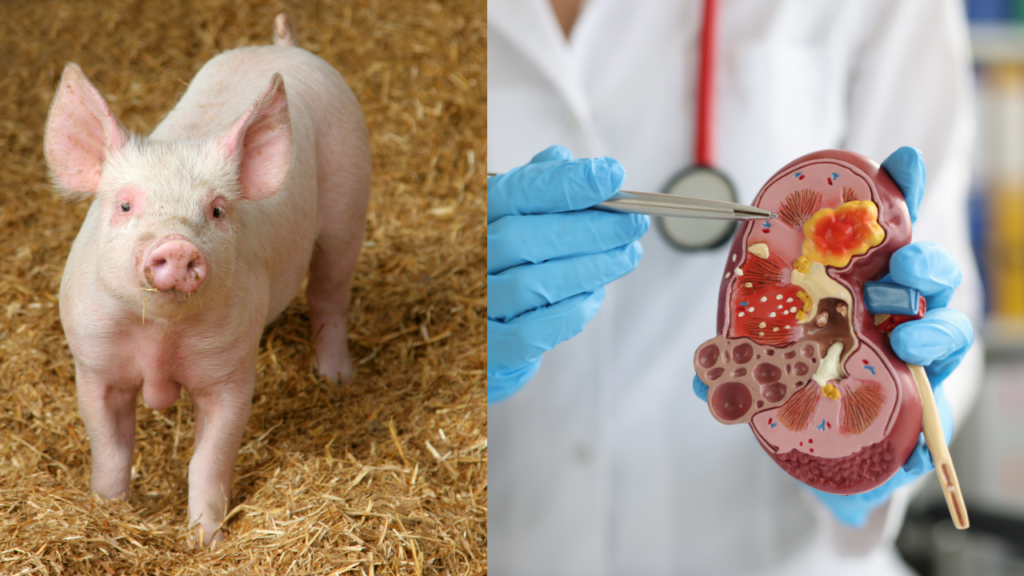
A 62-year-old man passed away several months after receiving the first kidney transplant from a genetically altered pig, which was heralded as a significant medical adva. After being diagnosed with end-stage renal disease last year, Rick Slayman received the kidney at Massachusetts General in March. The hospital stressed that there’s no proof his death was related to the transplant.
Slayman, a manager with the Massachusetts Department of Transportation, underwent the four-hour surgery on his physicians’ advice and was released from the hospital in April. After the procedure, the surgeons stated that they thought the donor kidney would survive for years, but they also noted that there are a lot of unknowns when it comes to transplanting animals into humans.
Massachusetts General said in a statement, “Mr Slayman will always be seen as a beacon of hope to countless transplant patients worldwide and we are deeply grateful for his trust and willingness to advance the field of xenotransplantation.” “We extend our sincere sympathies to the family and loved ones of Mr. Slayman as they remember an exceptional individual whose kindness and generosity touched everyone who knew him.” Slayman was a good man who was strongly devoted to the people in his life, according to his family.
In a statement, the family said, “We feel – and still feel – comforted by the optimism he provided patients desperately waiting for a transplant. We are deeply saddened about the sudden passing of our beloved Rick but take great comfort knowing he inspired so many.” Millions of people worldwide have come to know Rick’s story.
Slayman had been a patient in the hospital’s transplant program for 11 years, he previously said in a statement. He received a kidney from a human donor in 2018, after living with diabetes and high blood pressure for many years. The kidney began to show signs of failure five years later, and he resumed dialysis in 2023. The groundbreaking operation was performed in March to a round of applause in the operating room by Dr. Tatsuo Kawai, director of the Legorreta Centre for Clinical Transplant Tolerance. According to the Organ Procurement and Transplantation Network, there are currently over 100,000 people waiting for an organ donation. “I saw it not only as a way to help me, but a way to provide hope for the thousands of people who need a transplant to survive,” Slayman wrote in the statement.
Researchers have been looking at the safe and effective transplantation of animal organs into humans for a long time, and they believe this could help address the organ shortage. Only two transplants of pig organs had been finished before to Slayman’s; both were heart transplants carried out under compassionate usage. Both individuals died weeks after getting the hearts.
In a statement released late on Saturday night, EGenesis, the biotech company that supplies the genetically modified pig kidney, referred to Slayman as “a true pioneer.” “The company expressed its deep gratitude to Mr. Slayman and his family, and it will continue to honour his legacy and his priceless contribution to science and medicine by advancing xenotransplantation for the millions of patients around the world who are in need of life-saving organs,” the statement read.
In a statement, Slayman’s family also expressed gratitude to his care staff at Massachusetts General. “Rick stated after his transplant that he went through the process in part to give hope to the thousands of people who depend on organ transplants in order to survive. Rick reached his objective, and his optimism and hope will last a lifetime. According to his family, “his legacy will serve as an inspiration to patients, researchers, and health care professionals worldwide.”
